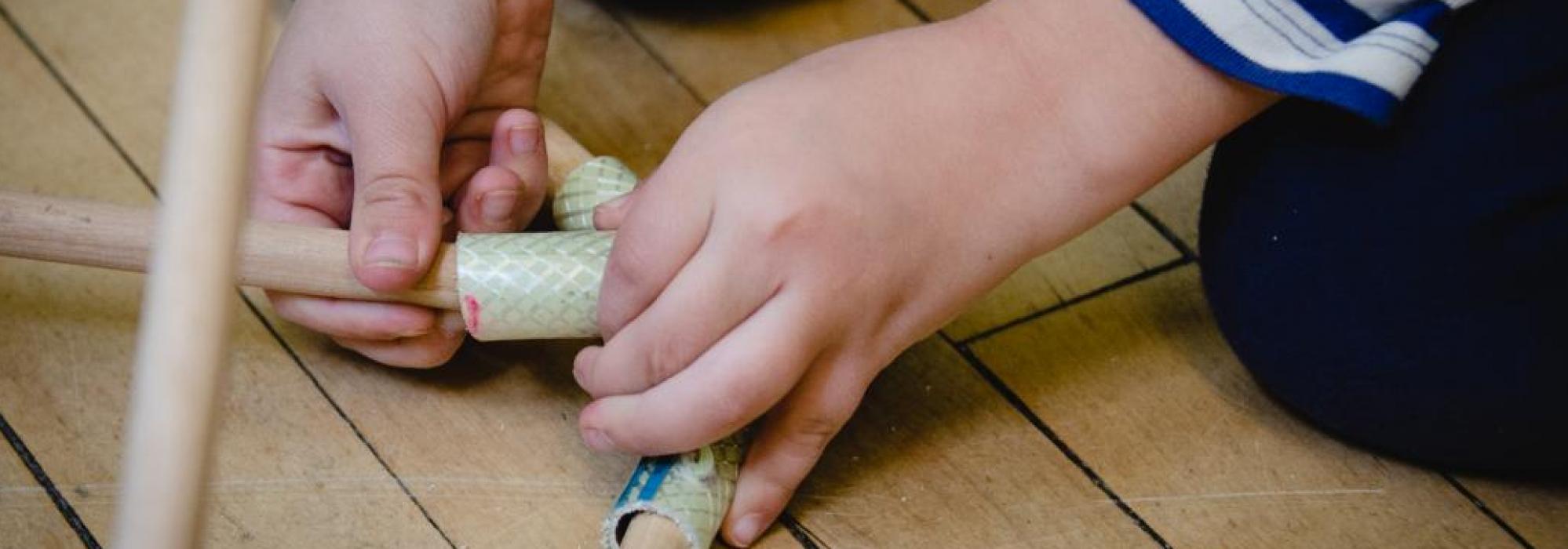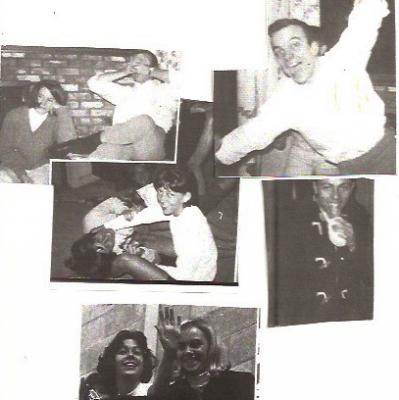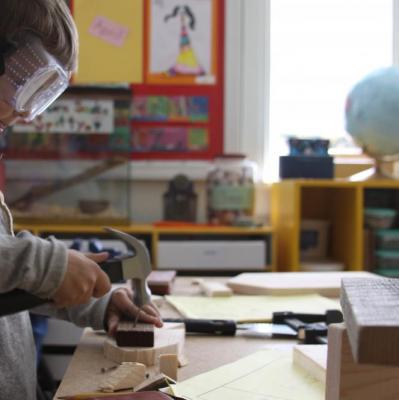
Just “Hacking Around”: Bringing New Meaning to a Storied Word
In this blog post, Agency by Design online course instructor Jane Jessep explores the storied meaning of the word “hack” by reflecting on her own experiences “hacking around” in the 1960s.

It was a cold, snowy day late in February of 1965. A small group of high school senior boys and girls, who had been close friends for several years gathered at one of their homes during winter break. Before leaving their homes, each of the teenagers’ mothers asked where they were going, and each responded, “Oh, we’re just going over to Mike’s and we’re gonna hack around for a few hours.” And so it went for most of the vacation, a motley crew of teenagers gathering each day to do some serious hacking around. The memory is still vivid.
I’ve been thinking about this word “hack” or “hacking” quite a bit lately. The word has been in the news a great deal over the last few years, and the news hasn’t been very positive. The mega entertainment company Sony’s emails were hacked and publicly shared a few years ago, much to the embarrassment of various media celebrities. The hacking of the popular budget store Target resulted in the purloining of data from millions of credit card holders. Most recently the national election of the United States was hacked by a foreign power, raising serious concerns about our government’s vulnerabilities to the nefarious purposes of our adversaries. These stories and others like them are chilling, so it is easy to see why many people might have a negatively charged understanding of this word.
According to the Random House dictionary, the word “hack” has been in use since around 1200. It has roots in Middle English, Danish, and German. Its meaning, “to cut to pieces” or “cut with heavy blows in an irregular or random fashion.” It has also been used to mean someone who is a drudge with little style or panache, or a mercenary. A hacking cough is a painful and dry cough. The term “to hack around” seems to have emerged in the 1950s, meaning to pass the time idly, to indulge in idle talk. Some have opined it comes from the golfing world. It was used widely by teens throughout the 50s and 60s.
“Hack” began to appear in yet another context in the 1950s: “mischief pulled off under a cloak of secrecy.” As described in a recent Wired magazine article, there is a note in the minutes of the MIT Tech Model Railroad Club, from 1955, which says; “Mr. Eccles requests that anyone working or hacking on the electrical system to turn the power off to avoid fuse blowing.” From this basically benign activity, by would be engineers in the 1950s, we move to the 1960s, during which time hacking began to acquire multiple connotations. To “hack” meant not only working on a system, but now implied as well, exploring systems and expanding their possibilities. And ominously, even in the earliest days of computer culture, people were aware that malicious intent was a dark possibility. Thus the concept arose of “white hat hackers,” for example, Apple tech creators of apps and new devices, versus “black hat hackers,” invaders of data systems, and email systems, meant to embarrass, steal from, or manipulate victims or even destabilize governments.

However, I’ve been thinking about the word “hack” not because of its constant appearance in the news. I have the great fortune to work as a coach in the online course designed by Agency by Design researchers, Thinking and Learning in the Maker-Centered Classroom. The book Maker-Centered Learning: Empowering Young People to Shape their Worlds is the central text for this course. And the definition for “maker-empowerment” within that text triggered my long ago memory and invited me to add additional texture to my understanding of hacking.
Maker empowerment: A sensitivity to the designed dimension of objects and systems, along with the inclination and capacity to shape one’s world through building, tinkering, re/designing, or hacking. (p. 98)
In this context, hacking is a positive, improvisational, creative, agency developing action. Makers and hackers can be, but are not necessarily merely, technically gifted object makers, they also have the disposition to be observant explorers and participants in their communities, resourceful and persistent. They are not only concerned with hacking computer related apps or programs, but also might consider school culture systems or political systems possible foci of exploration, with the intention to improve them, with the intent to make their world a better place. Drawing on a popular phrase from the world of Design Thinking, the authors of Maker-Centered Learning state that makers (sometimes known as hackers) have a “bias towards action…” (p. 99)
This brings me back to my time in 1965, when my friends and I had so many delightful moments of “hacking around.” These were moments of structure-less time, and no parental involvement. The hours were for us to shape as we would, creatively, with clever banter, laughter, music sharing, and a great deal of meaning making. We had hacked, while hacking around, our parents’ social norms and mores and were in the earliest, most innocent moments of creating new ones. We were co-creating new understandings of our world and ourselves as future shapers of that world.
As I continue to work with the many thoughtful educators and administrators who participate in the Thinking and Learning in the Maker-Centered Classroom online course, I wonder how others make sense of or respond to the words “hack,” “hacker,” and “hacking” when they hear it? I would be very curious to know how those of you reading this post make meaning of these words—and what memories or new possibilities these words trigger for you.








